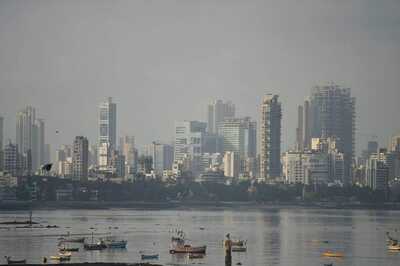
views
New Delhi: The average annual spending of Indians on online purchases is expected to rise 67 per cent to Rs 10,000 next year, according to a study.
Currently, online shoppers spend around Rs 6,000 a year on average, said the Assocham-PwC study.
About 40 million consumers purchased something online this year and the number is expected to grow to 65 million by 2015 with better infrastructure in terms of logistics, broadband and internet-ready devices.
The overall e-commerce industry, valued at $17 billion, has been growing at a compounded annual growth rate of about 35 per cent each year, the study said, adding that it is expected to cross the $100 billion mark in five years.
In 2014, the sector attracted the attention of investors, including top global firms and leading Indian industry leaders like Azim Premji and Ratan Tata, said the study, adding that brands like Flipkart and Snapdeal are enjoying edge over global players like Amazon in the country.
Online apparel sales continue to capture a greater share of India retail ecommerce as a category along with the computer and consumer electronics sector, fuelling the overall market growth.
"The smartphone and tablet shoppers will be strong growth drivers. Mobile phones already account for 11 per cent of ecommerce sales, and their share will jump to 25 per cent by 2017," Assocham Secretary General D S Rawat said.
Computer and consumer electronics, along with apparel and accessories, account for the bulk of India's retail ecommerce sales. These will contribute 42 per cent of the total retail ecommerce sales in 2015 from the current level of 39 per cent, said the study.
India's travel and tourism are second fastest growing travel and tourism industry in the world. Nearly 75 per cent of total travel related business has migrated to e-commerce.
With nearly one-third of internet users already making purchases online, the ecommerce growth will rely more on increased spending from existing buyers than first-time online buyers, it said.
Other factors contributing to the growth of e-commerce include aggressive merchandising and discounting from flash sales and daily deals, more online loyalty programmes and increasing popularity of smartphones and tablet computers among consumers, the study added.
The industry is expected to spend an additional $500 million to $1 billion on logistics functions, leading to a cumulative spend of $950 million to $1.9 billion till 2017-20, it said.
Currently, over 25,000 people are employed in e-retailing warehousing and logistics. It is estimated that there will be an additional employment of close to 1,00,000 people in these two functions alone by 2017-20, the study said.



















Comments
0 comment